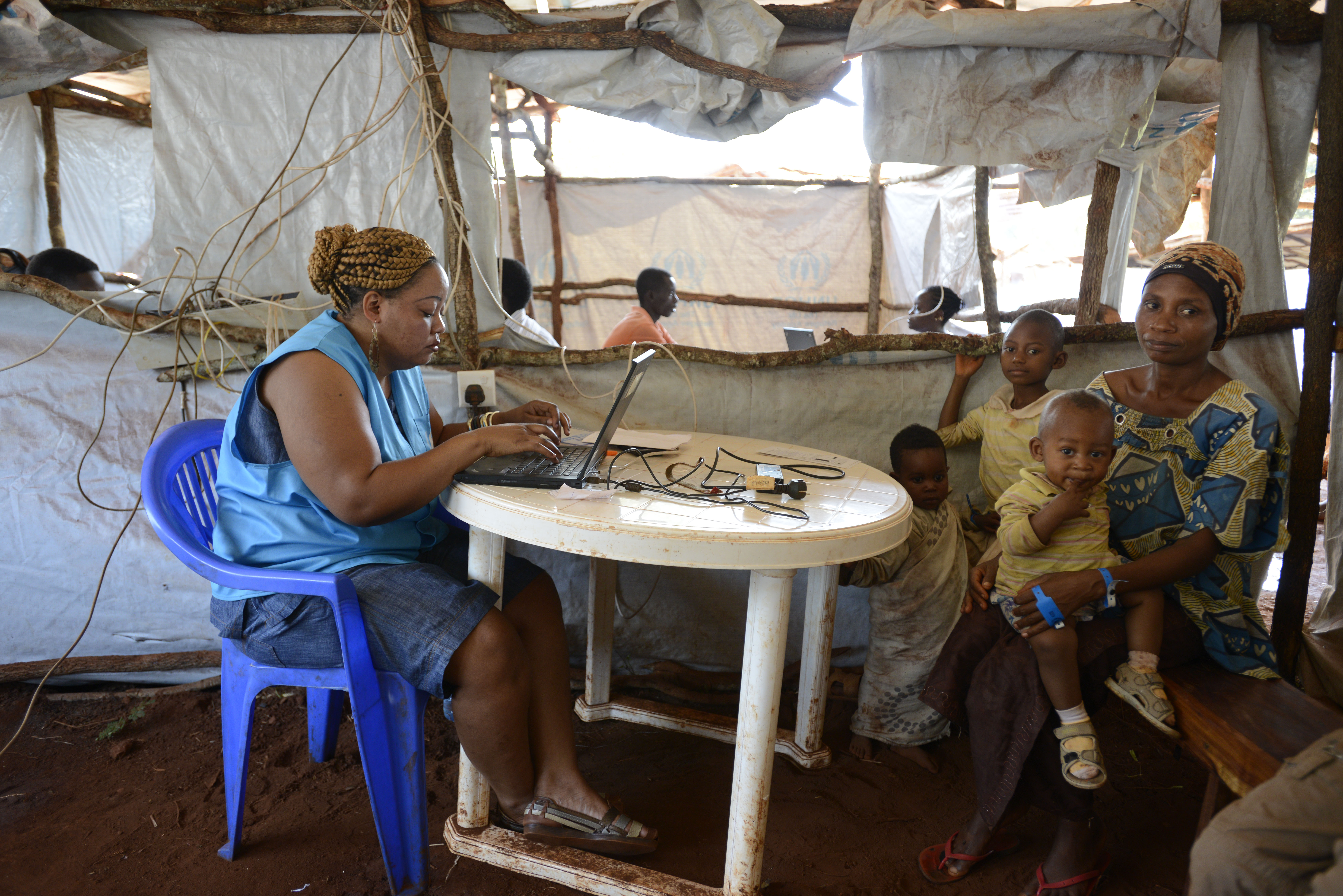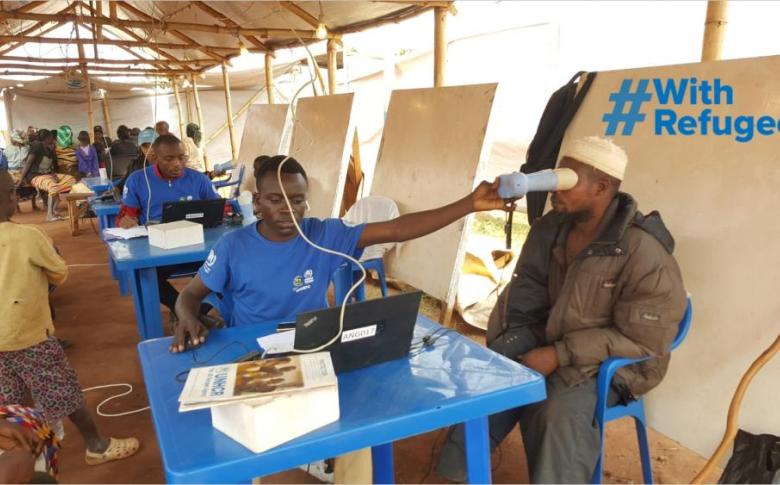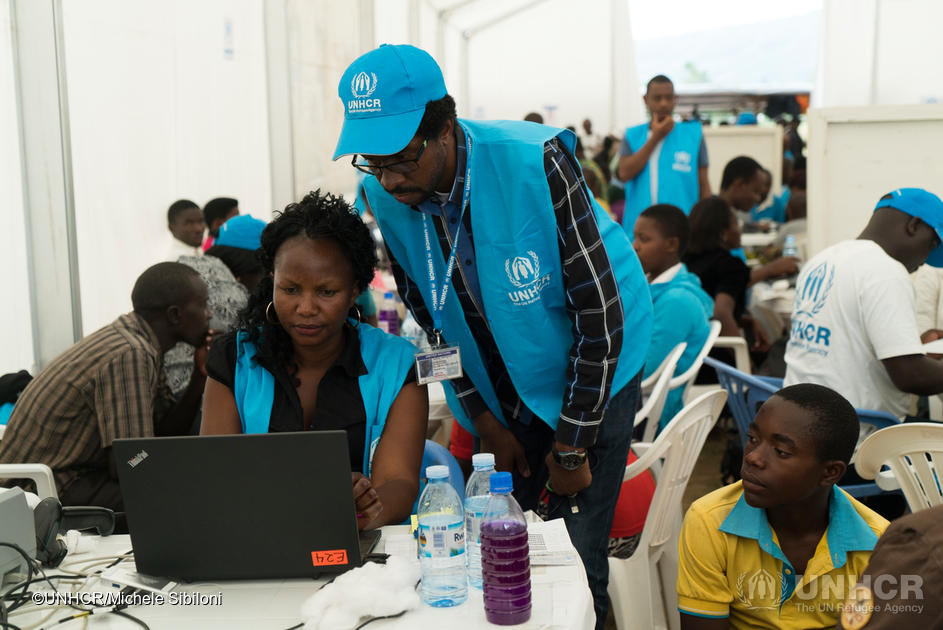
World Refugee Day 2018: Empowering Refugees through ICT

Geneva, 20 June - Today, World Refugee Day, is an incredible opportunity to salute the strength, resolve and courage of the men, women and children across the world, who have been forced to flee their homes due to conflict and upheaval.
When someone becomes a refugee, they don’t just lose their home - they lose their community, their way of life, their safety nets and systems of care. Information and Communications Technology (ICT) bolsters the efforts of the UN Refugee Agency (UNHCR), and the wider humanitarian community, to support refugees in rebuilding their lives and livelihoods.

“Technology is at its most powerful when applied with compassion,” says Doug Greene, Chief Information Officer and Director of the Division of Information Systems and Telecommunications (DIST). “On World Refugee Day and every other day, UNHCR is using ICT to protect and build better futures for forcibly displaced people.”
Through the UNHCR-led Refugee Emergency Telecommunications Sector (RETS), connectivity and communication tools are established on the ground, at the frontline of humanitarian need. In emergency situations, when the availability of secure networks is at its most critical, RETS coordinates the provision of connectivity and security communications services, unlocking internet access for humanitarians in the deep field, and enhancing the delivery of direct assistance and protection to refugees. RETS deployments to emergencies in Angola, Niger and Uganda have placed ICT tools directly in the hands of humanitarians, helping them to perform the essential, urgent work that saves lives.

These connections matter. RETS, and the critical internet connectivity it establishes, enables humanitarians to deliver vital frontline support to those fleeing instability and war. In Uganda, organisations like War Child Canada, which focuses on legal protection for victims of Sexual and Gender Based Violence, use the internet access for research, ensuring refugees are provided with accurate and up-to-date legal advice. In Niger, connectivity enables delivery of health and medical care. “Before, people couldn’t call us,” says Dr. Mamane Sani Abdoul-Moumouni, Head of Office, Action Pour Le Bien Etre. “With internet, they can access us. Through Whatsapp and Skype they can contact us and immediately we can send the ambulance.”
To find out more about the RETS deployment to Niger, watch the video: Internet boosts assistance for people displaced by Boko Haram
In the expanse between flight and arrival, and between arrival and integration or return, refugees are dogged by the relentless fear of disconnection, loss and isolation. By applying ICT with empathy, ambition and understanding, humanitarian organisations can harness the transformative power of new technologies to ensure that, whatever the challenges and obstacles of a refugee’s journey to safety, they don’t have to face them alone.
By Eimear McNamara, UNHCR